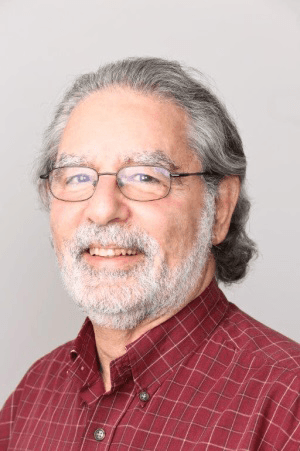Martin R.
With a focus on reverse mortgages, Martin helps homeowners make the most of their most important asset.

People turn to reverse mortgage counselors when they’re looking for money to finance a home improvement, pay off their mortgage, supplement their retirement income, or pay for healthcare expenses. Martin R. is one such counselor. His job includes helping senior citizens (62 years or older) stay in their homes.
What’s a reverse mortgage?
A reverse mortgage is one way a senior homeowner can access the equity in their house while still living in it. The house is still theirs and the mortgage doesn’t have to be repaid until later if ever.
There are lots of reasons why people get a reverse mortgage. What’s the most common reason you’ve heard?
“The most common reason is that they just don’t have enough income to live on,” Martin says. “They are living on $800 or $900 in social security for the most part.”
But Martin has heard other reasons like this one
“I recently received a call, and these people needed money to live on even though they are earning over $5,000 a month,” he explains. “One of their sons is going away on a religious mission for two years and they have to support him $400 a month while he’s out. So they needed that extra money to make that possible. But for the most part it’s people that just don’t have enough income to live comfortably on.”
What’s the nicest thing a housing client has ever told you?
“The most common is Thank you!'” he says. “Even though we’re not the people who are actually giving these people the mortgage, I enjoy just being part of the process, helping to explain a somewhat complex financial instrument.”
Martin says one of the reasons clients are so thankful is because many times the lenders don’t fully explain all the ins-and-outs of a reverse mortgage.
“Our job is to answer any and all questions that may come up, particularly with respect to each borrower’s unique set of concerns. Since we are involved so early in the reverse mortgage process, borrowers often come to us with only a superficial idea of what a reverse mortgage really is.”
Why do you think that is? Why aren’t potential borrowers better educated before speaking with you?
“In some cases, the lenders simply haven’t gotten that far yet. They’ve just begun the process and may be treading lightly at the start, perhaps in fear of overwhelming the borrower with so much information. Given our expertise, they are very comfortable letting the reverse mortgage counselor carry the heavy load, so to speak.”
Is there one thing you wish people would do before getting a mortgage?
Martin says if it were mandatory that every potential homeowner goes through counseling with a third party that’s not affiliated with a lender, this whole country probably could have avoided lots of problems. But that’s not a requirement except for reverse mortgages.
What advice do you have for first time home buyers?
People need to understand what kind of mortgages they are getting into. He also advises that you ask lots of questions of the lender and go to multiple lenders.
“Don’t get pushed into something unless you really understand what they are asking you to do,” he advises. “Perform due diligence beforehand so that when you sign an agreement you don’t have buyer’s remorse. Get the info first. Become as educated as possible.”
If you want to access your equity, talk to a HUD-approved housing counselor first.
If you’re a senior homeowner and you’re struggling to stay ahead of your budget, a reverse mortgage can help. To learn if it’s the right option for you, call us at 1-800-435-2261. We can provide the answers and pre-counseling you need to become a reverse mortgage success story.